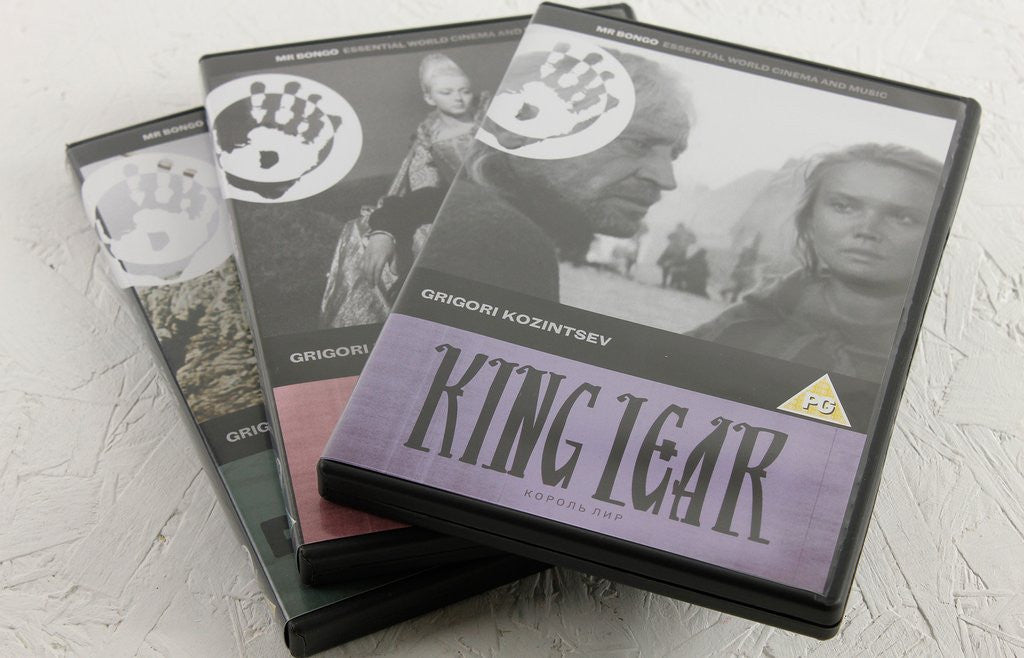
Grigori Kozintsev belonged to an astonishing generation of Russian artists. Born in Kiev in 1905, Kozintsev studied at St. Petersberg’s famed Imperial Academy of Art where he began his lifelong engagement with theatre. The Russian Revolution and the avant-garde movements that followed in its wake would bear a great impact on his imagination. To this period belongs the futurist poetry of Vladimir Mayakovsky, Aleksandr Blok, the Formalist criticism of Viktor Shklovsky and Roman Jakobson and the dramaturgical innovations of Vsevolod Meyerhold on the Russian stage.
Along with Leonid Trauberg, Grigori Kozintsev formed the Factory of the Eccentric Actor (FEKS) at St. Petersburg in 1921. FEKS had a pivotal influence on Soviet cinema, especially when Trauberg and Kozintsev put their artistic theories into practice through the films made with the dramaturgical collective.
At the age of 19, Kozintsev (co-directing with Trauberg) made his directorial debut with The Adventures of Oktyabrina. The most celebrated silent work of the duo includes The Devil’s Wheel, an adaptation of Nikolai Gogol’s The Overcoat and above all the 1929 masterpiece, The New Babylon. The latter film set in a department store during the Paris Commune of 1871 displayed a freedom of invention and passion for experimentation that rivaled the celebrated works of Eisenstein and Pudovkin. Kozintsev’s partnership with Trauberg continued well into the sound era, terminating in 1947.
Kozintsev’s post-war career witnessed a turn away from the present. After biopics of Russian scientist Nikolai Pirogov and critic Vissarion Belinsky, Kozintsev channeled his energies into literary adaptations. Don Quixote made in 1957 in Cinemascope and color, heralded a return to the international stage. This stirring adaptation of Cervantes’ masterpiece featured many of the same qualities that made his subsequent Shakespeare adaptations world renowned - a powerful command of widescreen framing, evocative use of landscape and a capacity to evoke powerful performances from his actors. He worked with the legendary Nikolai Cherkassov on Don Quixote, Innokenty Smoktunevsky in Hamlet and Jüri Järvet inKing Lear.
His stage productions of Hamlet and King Lear heralded similar response as his film versions of the same. Both reflect a lifelong engagement to Shakespeare’s art, simultaneously committed to fidelity with the source as well as modernizing them through Kozintsev’s distinct interpretation of the material. In his bookShakespeare: Time and Conscience, Kozintsev writes that in Shakespeare’s work : “the times are expressed both in accurate pictures of the life contemporary to them, and in generalizations that penetrate the depths of an historic contradiction developing in different forms”. His film versions of Hamlet and King Lear proceed from this view by depicting the world of these plays against the context of society and culture, thereby bringing to light the hidden political context suppressed in Shakespeare’s works.